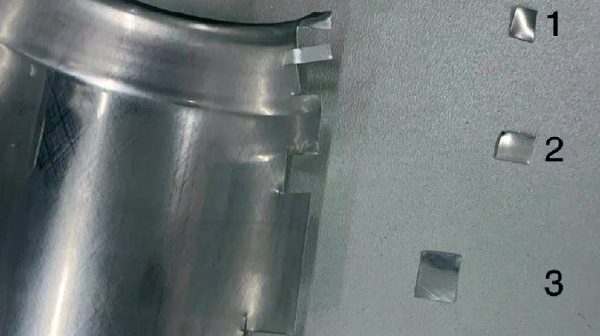Aluminum beverage cans are used for all kinds of drinks, but when it comes to wine there are some glitches. Chief among them is the fact that canned wine occasionally smelled like rotten eggs. Thankfully, researchers have figured out why that happens, and how to stop it. How was this determined? As the image above hints at, lots and lots of samples and testing.
What causes this, and why don’t other beverages have this problem? Testing revealed that the single most important factor was the presence of molecular sulfur dioxide (SO2), a compound commonly used in winemaking as an antioxidant and antimicrobial.
It turns out that the thin plastic lining on the inside of beverage cans doesn’t fully stop molecular SO2 from reacting with the surrounding aluminum, creating hydrogen sulfide (H2S) in the process. H2S has a very noticeable rotten egg smell, even in low concentrations.
Researchers discovered that if a canned beverage contained more than 0.5 ppm of molecular SO2, a noticeable increase in hydrogen sulfide was likely to be present within four to eight months. The problem is that since most wines aim for around 0.5 ppm of SO2, the average can on wine sitting on a shelf will have a problem sooner rather than later. The more SO2 in the wine (reds tend to contain less, whites more), the worse the problem.
Simply increasing the thickness of the plastic liner is an imperfect solution since it increases manufacturing costs as well as waste. So, researchers believe the right move is to use a more durable liner formulation combined with a lower SO2 concentration than winemakers are usually comfortable with. Unlike bottles, cans can be hermetically sealed which should offset the increased oxidation risk of using a lower concentration of SO2. The result should be wine as a canned beverage, with a shelf life of at least 8 months.
The research is published here and gives a great look at just how one approaches this kind of scientific problem, as well as highlighting just how interesting the humble aluminum beverage can really is.











